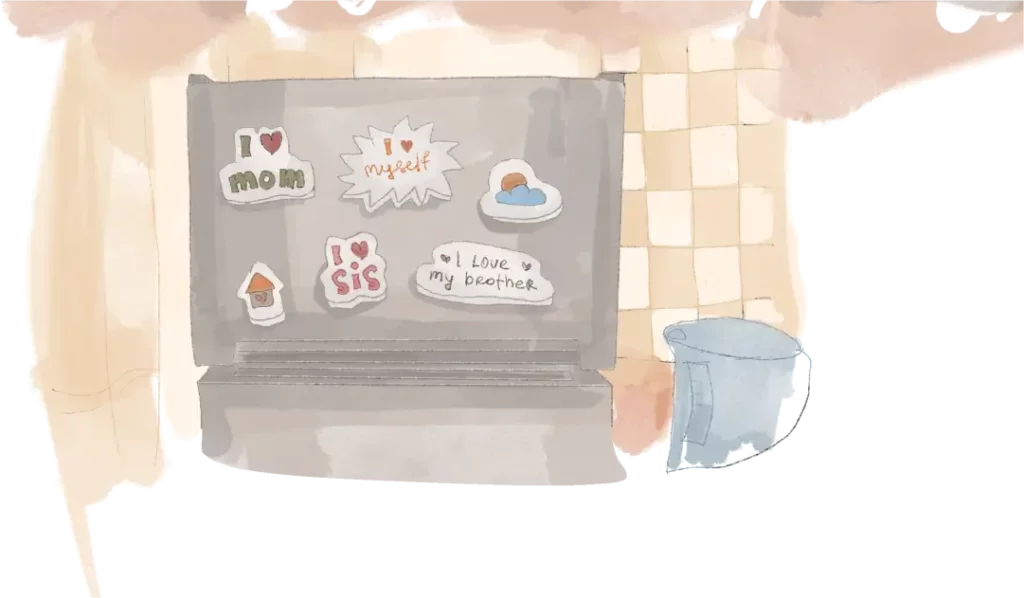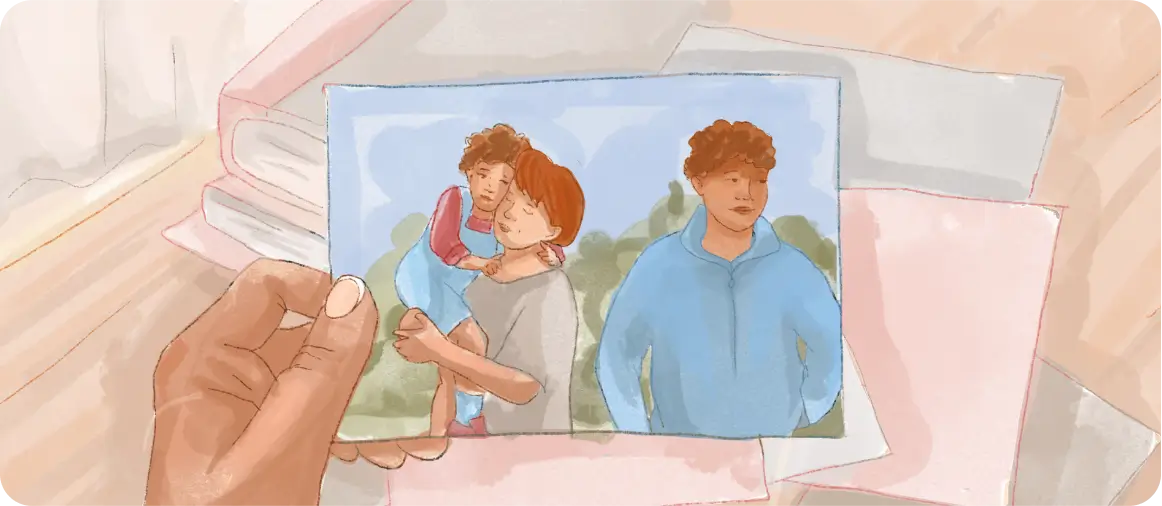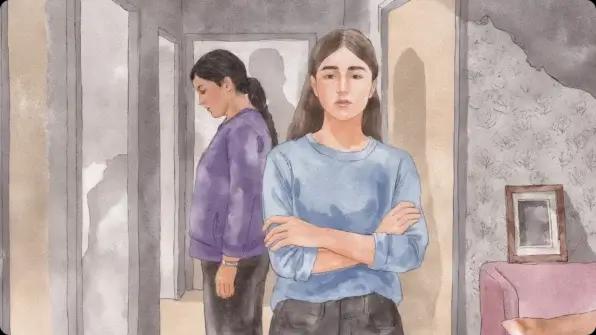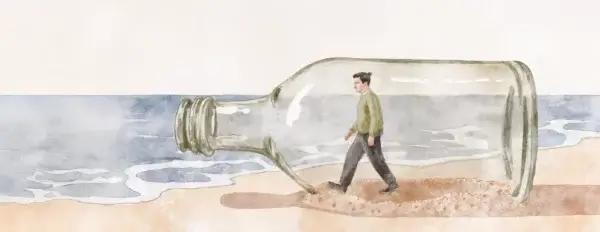Dads are our rocks, offering comfort, protection, and guidance. Yet, there are moments when even our dads can’t be everything we need. Things like favoring siblings, breaking promises, or uncontrolled anger can lead some people to feel hate for their fathers.
We all long to be understood. Let’s explore the complex emotions surrounding the question, “Why do I hate my dad?” and understand why some of us may feel this way.
6 Reasons “I Hate My Dad” Feeling
So, let’s try to answer this question together and explore the most common reasons for hating dad or stepdad.
1. Traumatic Childhood Experiences
Traumatic events, such as neglect, physical, verbal, or emotional abuse you may have endured from your father during your formative years, can profoundly shape our emotions and relationships later in life. Children exposed to domestic violence or abuse often develop emotional and behavioral problems later on. [1]
As adult children, those memories of abuse and the associated pain may persist. You may struggle with questions like “How can I tell my dad I hate him?” because you feel the need to express the unresolved anger and hurt. You might perceive his lack of care or concern, fueling a desire to confront him with your feelings.
If you have abusive parents or father abandoned you, you might find it difficult to trust others, form close relationships, or express your emotions. There may be a lingering fear of being hurt again.
It is also important to remember that you are not responsible for your father’s abuse. You are not responsible for anybody else’s actions. You did nothing to deserve it. You are a valuable person who deserves to be loved and respected.
In these situations, professional help and talking to a therapist is crucial. They can help you understand your strong feelings and guide you toward healing.
You can also enroll in our 28-Day Childhood Trauma Healing Plan to gain valuable insights into your relationships, personal growth, and practical steps toward recovery.
2. Emotional Disconnect
Emotional unavailability might be another symptom of the hating my dad feeling. Have you ever felt like your dad was just… never there? He was physically present but emotionally disconnected, as if he were living in the same house but not in your life.
If your dad is emotionally unavailable, he might rarely express affection through hugs, kisses, or other gestures of warmth. Such behavior might leave you feeling unloved and unvalued and might contribute to developing a father wound.
Such behavior can be a sign of emotional neglect or an emotionally distant parenting style, sometimes referred to as cold father syndrome. It might leave you yearning for a connection and feeling like you’ve lost a part of yourself—your inner child.
To learn more about your inner child, take our lost inner child test and gain more understanding.
3. Picking up “Favorites”
Favoritism can fuel hateful feelings, too. It can manifest in more subtle ways, such as a father consistently making time for his son’s sporting events while neglecting your dance performances. Or perhaps he’s glued to the TV playing video games with your brother, but he yawns when you show him your latest painting.
It’s completely natural to have intense feelings about this, even to the point of thinking, “I hate my dad so much. I hate my family.” When you’re constantly overlooked, it’s easy to start questioning your worth, asking, “Why do I hate myself?” and wondering if there’s something wrong with you. But remember, his actions are not a reflection of your value.
4. Misunderstanding Your Teenage Rebellion
During your teenage years, the thought of hating your father could frequently occur in your head. Teenage years are tough—a whirlwind of self-discovery and exploration that can sometimes lead to rebellion.
This rebellion often manifests as rule-breaking, like skipping classes, dyeing hair, getting piercings, or questioning authority figures like teachers or parents.
While it’s a natural part of growing up, parents can misinterpret this as a personal attack or a reflection of their parenting. But sometimes, fathers struggle to adapt to this change. They might feel hurt or rejected when their once-obedient child starts questioning their authority, leading to misunderstandings and reactive abuse.
For instance, your dad might disapprove of your new friends, criticize your fashion choices, or try to control your social life. You might say, “Why is my dad always angry? I hate him.” Faced with teenage rebellion, some fathers may believe a strict approach is the only solution.
However, such authoritarian parenting can be reversed, promoting dishonesty and manipulation in children and ultimately undermining trust within the family. [2]

5. Hurting People You Love
The words “I don’t like my dad” are heavy, complex, and often filled with shame. Discovering that your father has hurt people you deeply care about can shatter your world.
For example, finding out that your father has been unfaithful to your mother can lead to intense feelings of anger, betrayal, or confusion.
Or what if you discover he’s addicted to gambling and blew all the family’s savings at the casino? You’d probably feel resentful, worried about money, and betrayed because he put his addiction before his family. It’s a form of financial abuse, too, because he’s misusing money that’s supposed to be for everyone. That can really damage your relationship with him. The emotions that follow are messy, intense, and incredibly painful.
They all can swirl together, making it difficult to know what to do or how to feel. You may admit, even just to yourself, “I hate my dad so much.”
6. Too Little Time Shared
A strong bond with their parents is essential for a child’s emotional well-being, especially in the early formative years. However, in an increasingly demanding world, many fathers find themselves consumed by work or handling personal challenges, leaving a void in the family dynamic.
This absence, whether through a divorce or emotional detachment, can lead to “daddy issues” in children.
These issues can manifest as a fear of abandonment, low self-esteem, and difficulties forming healthy relationships later in life. It’s a heartbreaking reality reflected in the statistic that 1 in 4 children in the US grow up without a father/father figure at home. [3]
The Psychological Effects of “I Hate My Father” Feeling
Okay, we’ve explored some of the reasons why people feel hatred towards fathers, and you may have identified with some of them. But how much can this feeling impact our adult lives, both now and in the future?
This is a good question because our past experiences shape who we are today, and it’s important to be aware of the potential consequences of harboring resentment.
Thus, this feeling toward father can manifest in our lives in various ways:
- Damaged self-esteem: Imagine hearing your dad say, “You’ll never amount to anything.” Those words can stick with you, making you doubt your own abilities and feel unworthy of love. It’s like constantly seeing yourself through a distorted, negative lens.
- Trust issues: When the person who is supposed to protect and love you unconditionally causes you pain, it can shatter your trust in others. If you ask yourself, “Why doesn’t my dad love me?” you may feel insecure and abandoned. You might find it challenging to let people in, fearing they’ll hurt you just like your dad did.
- A lifetime of anger: feel hatred toward dad may fester inside you, turning into a rage that affects everything you do. You may lash out at a grocery store clerk for a long line or scream at your partner for forgetting to take out the trash. Even minor inconveniences can trigger an outburst, asking yourself, “Why am I always angry and irritated for no reason?”
- Mental health struggles: All that emotional turmoil can take a toll on your mental health. Harboring feelings of hatred might lead to persistent sadness, anxiety, or even thoughts of self-harm or suicidal thoughts.
- Harmful coping mechanisms: To numb the pain of the “my dad hates me” feeling, some people turn to unhealthy coping mechanisms. For instance, this could mean drinking too much or using substances. While it may offer temporary relief, in reality, it can make things worse by leading to addiction problems and other health issues.
How to know if my father is toxic?
Your hateful feelings might be valid if a toxic father shows any of these signs:
- Used harsh discipline and punishment, often ignoring the natural developmental phase of growing up.
- You experienced verbal abuse, emotional or psychological abuse, violence, or neglect during childhood.
- They lack support but often put their own needs first.
- Often uses manipulation to control situations.
- Rarely show respect for their children, often undermining their autonomy and dismissing their feelings.
- Frequently sharing private matters of yours can lead to embarrassment.
- He is easily offended, often taking differences of opinion or questioning as disrespect.
- You are avoiding him because you are afraid of him having emotional outbursts.
Healing From “I Hate My Dad” Feeling
It’s completely understandable to feel angry or resentful toward your father. But you’re definitely not alone in feeling this way. And just remember, reaching out for help takes a lot of strength and courage.
- Understand your feelings. Don’t just say, “I hate my father.” Dive deep. Was it that one Christmas when he forgot your gift? Or years of neglect? Understanding the why helps you process those feelings. Maybe it wasn’t even him, but the situation he put you in.
- Talk about your feelings with him. If you become angry with your father, there are several steps you can take to stay calm and regulate your emotions. Begin by identifying your anger, taking a cleansing breath, and calmly stating what made you furious with an “I” statement. Here’s an example: “I felt angry when you screamed at me over the phone.”
- Set up healthy boundaries. Let rage take over and yell at each other—it will escalate to a fight. Set and stick to boundaries with your father or other parent instead. To safeguard yourself, think about what your dad does that makes you uncomfortable and establish reasonable limits. For example, you can schedule a time to meet or have him call you at a time that works best for you and your mental health.
- Cut or limit your time with your father. If he won’t respect these boundaries, try to keep your distance and minimize your time together. You should cut off all contact with him if your mental health keeps getting worse as a result of talking to him.
- Find positive role models in your life who can offer guidance and support. This could be a mentor, therapist, teacher, or friend’s father. Building healthy relationships with these figures can help fill the void and redefine your understanding of fatherhood.
- Rewrite your narrative. It may be challenging, but identify any positive lessons you’ve learned instead of focusing on the negative. Did your experiences with your dad teach you resilience, independence, or empathy? Finding even small silver linings can shift your perspective and help your healing.
Struggling with complicated feelings about your dad? Breeze helps you untangle emotions with mood tracking, self-discovery tests, journaling, and healthy routines. Understand your patterns, heal past wounds, and grow into your best self. Start your journey to clarity and peace today—because self-awareness is the first step to healing!
TL;DR
- Most parents believe they are doing the right thing, given their knowledge and resources, even if their actions unintentionally cause pain.
- The feeling of hatred towards one’s father often stems from difficult childhood experiences such as neglect or abuse. Emotional disconnection, favoritism, misunderstanding teenage rebellion, hurtful actions, and a lack of quality time can contribute to this feeling.
- The psychological effects of this hatred may include damaged self-esteem, trust issues, anger, and mental health struggles.
- Healing includes seeking therapy, understanding your feelings, reframing your narrative, and setting boundaries.
Sources
- Katherine Thompson-Walsh, Katreena L. Scott, Victoria Lishak, Amanda Dyson, How domestically violent Fathers impact children’s social-emotional development: Fathers’ psychological functioning, parenting, and coparenting, Child Abuse & Neglect, Volume 112, 2021.
- The Effects of Parenting Styles on Prosocial Lie-Telling Behaviors in Young Children, Volume 2, Issue 2 (2020) Family Perspectives Summer 2021
- U.S. Census Bureau, Families and Living Arrangements reports, 2023
Disclaimer
This article is for general informative and self-discovery purposes only. It should not replace expert guidance from professionals.
Any action you take in response to the information in this article, whether directly or indirectly, is solely your responsibility and is done at your own risk. Breeze content team and its mental health experts disclaim any liability, loss, or risk, personal, professional, or otherwise, which may result from the use and/or application of any content.
Always consult your doctor or other certified health practitioner with any medical questions or concerns
Breeze articles exclusively cite trusted sources, such as academic research institutions and medical associations, including research and studies from PubMed, ResearchGate, or similar databases. Examine our subject-matter editors and editorial process to see how we verify facts and maintain the accuracy, reliability, and trustworthiness of our material.
Was this article helpful?




